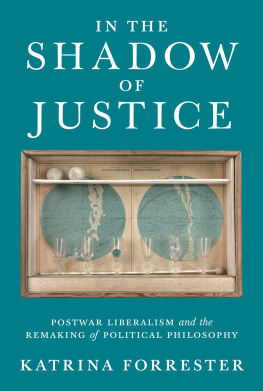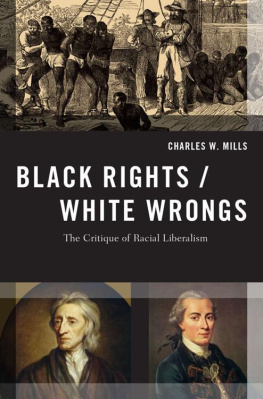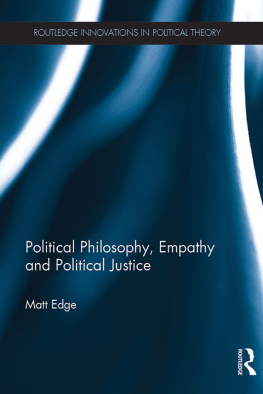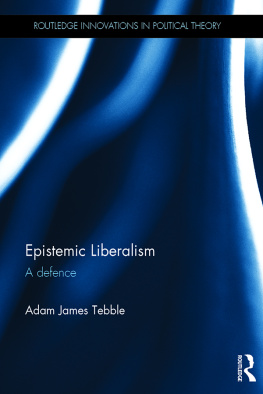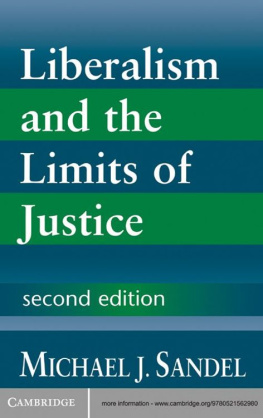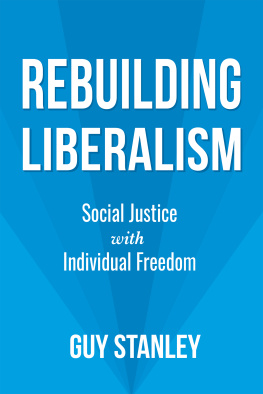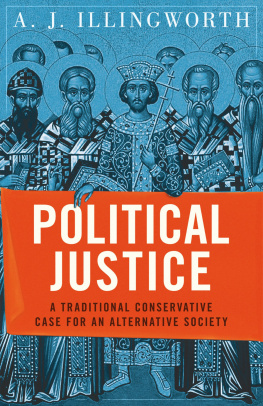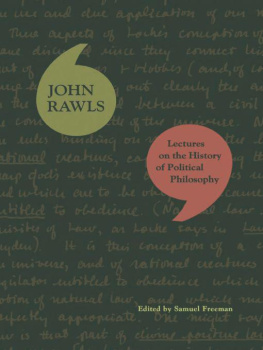Forrester Katrina - In the shadow of justice : postwar liberalism and the remaking of political philosophy
Here you can read online Forrester Katrina - In the shadow of justice : postwar liberalism and the remaking of political philosophy full text of the book (entire story) in english for free. Download pdf and epub, get meaning, cover and reviews about this ebook. year: 2019, publisher: Princeton University Press, genre: Politics. Description of the work, (preface) as well as reviews are available. Best literature library LitArk.com created for fans of good reading and offers a wide selection of genres:
Romance novel
Science fiction
Adventure
Detective
Science
History
Home and family
Prose
Art
Politics
Computer
Non-fiction
Religion
Business
Children
Humor
Choose a favorite category and find really read worthwhile books. Enjoy immersion in the world of imagination, feel the emotions of the characters or learn something new for yourself, make an fascinating discovery.
- Book:In the shadow of justice : postwar liberalism and the remaking of political philosophy
- Author:
- Publisher:Princeton University Press
- Genre:
- Year:2019
- Rating:3 / 5
- Favourites:Add to favourites
- Your mark:
- 60
- 1
- 2
- 3
- 4
- 5
In the shadow of justice : postwar liberalism and the remaking of political philosophy: summary, description and annotation
We offer to read an annotation, description, summary or preface (depends on what the author of the book "In the shadow of justice : postwar liberalism and the remaking of political philosophy" wrote himself). If you haven't found the necessary information about the book — write in the comments, we will try to find it.
Forrester Katrina: author's other books
Who wrote In the shadow of justice : postwar liberalism and the remaking of political philosophy? Find out the surname, the name of the author of the book and a list of all author's works by series.
In the shadow of justice : postwar liberalism and the remaking of political philosophy — read online for free the complete book (whole text) full work
Below is the text of the book, divided by pages. System saving the place of the last page read, allows you to conveniently read the book "In the shadow of justice : postwar liberalism and the remaking of political philosophy" online for free, without having to search again every time where you left off. Put a bookmark, and you can go to the page where you finished reading at any time.
Font size:
Interval:
Bookmark:

IN THE SHADOW OF JUSTICE
In the Shadow of Justice
POSTWAR LIBERALISM AND THE
REMAKING OF POLITICAL PHILOSOPHY
KATRINA FORRESTER
PRINCETON UNIVERSITY PRESS
PRINCETON & OXFORD
Copyright 2019 by Princeton University Press
Published by Princeton University Press
41 William Street, Princeton, New Jersey 08540
6 Oxford Street, Woodstock, Oxfordshire OX20 1TR
press.princeton.edu
All Rights Reserved
Library of Congress Control Number: 2019930946
ISBN: 978-0-691-16308-6
British Library Cataloging-in-Publication Data is available
Editorial: Rob Tempio and Matt Rohal
Production Editorial: Ellen Foos
Jacket Design: Chris Ferrante
Production: Merli Guerra
Publicity: James Schneider and Kate Farquhar-Thomson
Copyeditor: Cynthia Buck
Jacket image: Joseph Cornell, Planet Set, Tte Etoile, Giuditta Pasta (ddicace), 1950 2019 The Joseph and Robert Cornell Memorial Foundation / Licensed by VAGA at Artists Rights Society (ARS), NY
This book has been composed in Arno
Printed in the United States of America
10 9 8 7 6 5 4 3 2 1
For my mother
In memory of my father
And for Jamie
CONTENTS
PREFACE
POLITICAL PHILOSOPHY IN the English-speaking world today is largely concerned with a set of liberal ideas about justice, equality, and the obligations of individual citizens in capitalist welfare states. For the most part, it is also associated with a certain view of the tasks of political philosophyhow it works and what it aims to do. At other times and in other places in the history of political thought, political philosophy has served to legitimize political change by appealing to history or utopia, or to particular groups or actors as the motors of reform or revolution. Now, liberal political philosophers pass ethical judgments on the world by appealing to general moral principles designed to help us make sense of what justice requires of our politics and institutions. This dominant idea of political philosophy rests on a faith that the political world would be better off if it could be reformed in accordance with those principles. Its advocates conceive of themselves as engaged in a common intellectual project with a shared conceptual vocabulary. They hope that we can be guided by their philosophical vision of what social life could be like if institutions were more just and more equal.
In the middle of the twentieth century, it was less certain what political philosophy was and what it could do. There was no settled view of the moral principles at its core or of the terms of philosophical debate. Nor was there a consistent understanding of what kind of politics it envisioned, or what was required to implement that vision in the world. Sometime between then and the early twenty-first century, the very idea of political philosophy was transformed. A collection of ideas cohered into a doctrine known as liberal egalitarianism. Theories of egalitarian distributive justice became the dominant way of thinking about institutions. Even where they were challenged, they were taken as a referent.
This book is a history of the transformation of liberal political philosophy that took place in the second half of the twentieth century. It is about how one theory, born of the postwar era, became the dominant mode of theorizing in a different age, and continued to shape political philosophy in the Anglophone world in new historical circumstances, long after the moment of its birth had passed. In 1971, the American liberal analytical philosopher John Rawls published A Theory of Justice. There he laid out the apparatus of justice theory that became the dominant conceptual framework for subsequent theorizing about politics among philosophers and many political theorists in the United States, Britain, and elsewhere. His account of a just society required its reorganization into a property-owning democracy where inequalities were heavily circumscribed and everyone had a stake.
The impact of Rawlss theory on the landscape and language of political philosophy was immense. Only a decade after the publication of A Theory of Justice, one bibliography listed 2,512 books and articles engaging with Rawlss thought. For his followers, Rawls became a patron saint, the visionary behind an egalitarian dream of distributive justice. Among his critics, he was known as a neo-Kantian individualist who adapted the toolkit of rational choice and decision theory and viewed individuals as at once self-interested economic agents and autonomous moral persons. They saw him as providing a philosophical rationalization of a liberal welfare state or, worse, a defense of the conservative status quo that implicitly framed America as a land of liberty and civic freedom. Yet in his wake, political philosophy was remade. Philosophical liberalism became synonymous with Rawls, and political philosophy synonymous with a kind of liberalism born of postwar America. Even many who opposed it were shaped by it. By the late twentieth century, Anglophone political theorists operated in the shadow of justice theory.
When the story of this transformation is told, particularly by political philosophers themselves, it is usually presented as one of philosophical success. They give a narrative of philosophys midcentury death and its revival with the publication of Rawlss Theory. On this reading, the Second World War had left philosophers unable to think about justice or utopia. Political theory was declared to be dead.
This book gives a different view. The story of philosophys death and revival is a tale of philosophical success. But it is also a ghost story, in which Rawlss theory lived on as a spectral presence long after the conditions it described were gone. The late twentieth-century transformation of liberal philosophy begins with Rawls, but it does not begin in 1971. Rawlss liberalism came from a different America. It was never straightforwardly a defense of the welfare state. It was also forged in an era when liberalism was full of contradictions. Even at its postwar peak, American liberalism remained limited and exclusionary.
Rawlss theory had its origins in a forgotten world of ethics and in a set of ideological battles that his own shadow has long hidden from viewin part thanks to the move of philosophy, which he led by example, to a higher level of abstraction. When the intellectual architecture of contemporary liberal philosophy was first built, Rawls drew on decades of political and economic debates about liberalismonly some of which were concerned with the welfare state. The theory we now call liberal egalitarianism reflected a particular constellation of postwar liberalism and its afterlives. Yet the construction of that theory was not the work of one man alone. The sociological conditions that enabled its rise were set in the postwar years and in the 1960s, in part due to the impact of the Vietnam War on a younger generation of moral and political philosophers who worked in the Cold War university. In the 1970s and 1980s, it became the theory that mediated the relationship of political philosophers to politics.
Understanding this remaking of political philosophy involves returning to its historical origins, exploring which political events and ideas shaped philosophical debate, and determining how and when they did so. In the second half of the twentieth century, the relationship of philosophers to politics changed, thanks to the dominance of this distinctive approach to political philosophythe liberal philosophy of public affairsand the distinctive theory that became dominant within it, liberal egalitarianism. This book is about that change and its consolidation, and about the politics of that approach and that theory. It describes what that politics was and what it foreclosed, and how it became submerged in the period of philosophical reinvention and interpretation that followed the publication of Rawlss book. The resurgent faith that philosophy could improve the world and the philosophical vision of what justice is and what social life could be were products of a specific historical moment and its constraints. What follows is the history of how that faith and vision emerged from a less familiar world, and how their rise has shaped our own.
Next pageFont size:
Interval:
Bookmark:
Similar books «In the shadow of justice : postwar liberalism and the remaking of political philosophy»
Look at similar books to In the shadow of justice : postwar liberalism and the remaking of political philosophy. We have selected literature similar in name and meaning in the hope of providing readers with more options to find new, interesting, not yet read works.
Discussion, reviews of the book In the shadow of justice : postwar liberalism and the remaking of political philosophy and just readers' own opinions. Leave your comments, write what you think about the work, its meaning or the main characters. Specify what exactly you liked and what you didn't like, and why you think so.

